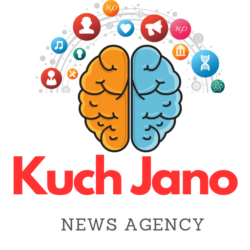Composite risk management, or CRM, is what?
In a multitude of fields, risk management is critical in today’s dynamic and complicated environment. However, what precisely is Composite Risk Management (CRM), and why is it important for its field? With a thorough analysis of its fundamental components, historical roots, and real-world applications, this extensive manual seeks to demystify CRM. You will have a solid knowledge of CRM and how its use results in a more orderly and productive workplace by the time you finish reading this article.
Read More: composite risk management meaning
Table of Contents
Composite Risk Management (CRM): What is it?
A systematic method for identifying, evaluating, and reducing risks related to operations, projects, or activities is called composite risk management, or CRM. Organizations and individuals utilize this methodical approach to make well-informed decisions that strike a balance between mission achievement and risk exposure.
Composite Risk Management’s Historical Context
CRM has its origins in the U.S. military, where it was first created to improve decision-making procedures in critical missions. CRM concepts have been applied in a variety of fields beyond the military, including project management, healthcare, and aviation.
Essential Components of Successful Composite Risk Management
Risk Identification: Determining possible hazards connected to a certain operation or activity is the first stage in CRM. This entails a careful examination of all possible risks, weak points, and outside influences that could affect the mission.
Risk Assessment: After a risk has been discovered, it has to be evaluated for likelihood, severity, and possible outcomes. This stage aids in risk prioritization and resource allocation.
Risk Mitigation: Following a risk assessment, plans and actions are implemented to reduce, neutralize, or contain possible dangers. This might entail changing working operations, applying safety regulations, or making use of protective gear.
Risk Assessment and Monitoring: CRM is a process that is iterated. To make sure that risk mitigation strategies continue to be applicable and efficient, it is imperative that they be continuously monitored. It is essential to regularly examine and update the CRM plan in order to adjust to changing conditions.
Risk Communication: In CRM, effective and transparent communication is essential. Every stakeholder participating in a project or operation has to be aware of the risks that might arise, how to mitigate those risks, and how their function fits into the overall risk management process.
Importance Within Their Individual Fields
Military Actions
CRM is essential to the military’s ability to complete missions. It helps soldiers and commanders make well-informed decisions under duress, ensuring that goals are met while reducing deaths and equipment losses.
Medical and Healthcare Procedures
CRM is used in the healthcare sector to improve treatment quality and patient safety. Through the identification and mitigation of hazards linked to medical operations, healthcare practitioners may provide more dependable and efficient services.
Aerospace and Aviation
CRM is essential to aviation security. In order to evaluate and reduce hazards during flights, pilots and air crew apply CRM concepts, which enhances aviation safety in general.
Project Organizing
CRM aids teams in project management by helping them foresee and handle certain obstacles that can occur while a project is being carried out. This proactive strategy guarantees that goals are accomplished on schedule and within budget, and it also produces more successful project outcomes.
Establishing a Well-Ordered and Effective Setting
An environment becomes more efficient and well-organized with CRM implementation by:
Proactive Decision-Making: CRM promotes a proactive mindset, allowing businesses to foresee and mitigate issues before they become more serious.
Resource Optimization: Resources may be distributed where they are most required by prioritizing risks. This ensures that crucial components of an operation are sufficiently safeguarded.
Improved Communication: CRM facilitates efficient and transparent communication between team members, creating a cooperative atmosphere where all members are aware of their respective roles and duties.
